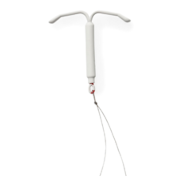The best and worst of health care: 5 things to keep in mind
We asked our Bedsider U community to share their good, bad, and ugly health care stories. Here’s what we learned.

When I told my doctor I wanted an IUD, I was surprised the short procedure wouldn’t be performed then and there. Instead, my doctor arranged for a nurse to call me and talk me through all of my options.
I thought I knew which device I wanted. The phone call with the nurse changed my mind. She laid out objective information on all of my options and asked me questions about my lifestyle that helped lead me to a better choice. Throughout our conversation, I never felt rushed to make a decision. There seemed to be no question or concern too small for the nurse to answer thoughtfully. By the end, I felt confident in the new method and less nervous about the process.
The insertion didn’t go so smoothly, but throughout that challenging experience, I felt my doctors were supportive and receptive. That feeling has been rare in my health care history. More often I feel rushed through visits by health care providers who aren’t quite listening or who second-guess what I tell them.
I’m not alone. Health care quality can vary widely, and women are more likely to experience disparities. I asked the Bedsider U community to share their best and worst health care stories to shed light on factors that affect our experiences with health care providers. Here are 5 things their stories can teach us.
1. Providers aren’t immune to prejudice.
Health care disparities can be caused by personal bias. Studies show that a patient’s race and weight can affect the care they receive. One Bedsider U rep, Tyler, shared an experience with bias on both fronts.
“One of the main reasons for this visit was my mother being concerned with the weight I had gained after being released from the hospital as she hoped it wasn’t from the medication or even my illness returning… We asked the Physician’s Assistant (PA) about it and … she says ‘well you gaining a lot of weight is common from drinking a lot of soda and eating a lot of fried foods.’ Never once had I mentioned anything about either of those things, which is when I told her I didn’t, I actually eat pretty healthy, don’t drink soda at all. Then she turns to my mother and says ‘well I know it’s common in African American households to make fried foods, how often do you make fried foods?’" ~Tyler
Pro tip: The Affordable Care Act protects against a bunch of forms of discrimination. If you think prejudice is at the root of a negative health care experience, you can report your experience to administrative staff and/or the Office of Civil Rights.
2. Trust is key to good care.
Sometimes we may not be totally honest with our doctors. Conversations about sex and our bodies can be uncomfortable to have with a new provider or one you only see once a year.
But fibbing about your lifestyle or symptoms can make it harder for your provider to give you the best possible health care. If you’re worried about what you share getting to another party, know that there are only rare situations where your provider is allowed to share what you discuss with anyone else.
Things also get complicated when your provider doesn’t trust what you’re sharing with them. This was part of Tyler’s story too.
"The PA then seemed uninterested in any of our other questions or concerns with her statements and begins to go through the routine questions: ‘How do you feel? When was your last menstrual cycle?’ …Then she asks if I’m sexually active and I said no. She hesitates a little then proceeds to ask me questions about types of birth control I’m interested in, if I want the HPV vaccines, and whatnot. I don’t even get a chance to reply when my mother starts ‘Didn’t you hear her? She said she’s not sexually active,’ to which the PA responds that she thinks I’m lying which is why they don’t like parents in the room with us.” ~Tyler
Trust and respect are incredibly important to quality health care—they can even improve your odds of finding a birth control method you love. If you don’t feel you can be open with your provider, or if you don’t feel he or she listens and respects you, it may be time to find someone new.
3. Health care doesn’t end at the doctor’s office.
The pharmacist who fills your prescription can have a major impact on your health, as was the case for Connor.
“I’ve been on birth control since around the age of 10 because of horribly painful and recurring ovarian cysts. Over the years I’ve experimented with around 4 of the hormonal methods, but started out on the pill. Because it was literally keeping me from monthly hospitalizations, my family had no problem with me being on birth control and just called it my medicine…
When I was around 12 my mom asked me to pick up my prescription from the grocery store pharmacy while she gathered the last few groceries. This was pretty normal, but this time there was a different pharmacist. She took my prescription, paled, looked me right in the eye, and asked me 'Do you know what this is?‘ I replied 'It’s my medicine.' She snapped back 'Does your mother know you are having sex? You’re too young for this. You should be ashamed.’
I ran away. I didn’t fill my prescription and I didn’t tell my mom. I ended up in the hospital that month with a ruptured cyst the size of a golf ball, writhing in pain with an IV of pain medication. All because a pharmacist decided to shame me about something I didn’t even understand yet.” ~Connor
Pharmacists can also do a lot of good, answering questions or pointing out a drug interaction or dosage issue that another health care provider missed. In some states, they can even prescribe birth control!
Pro tip: If a pharmacist—or any other health care provider—tries to shame you, refuse you service, or otherwise prevent you from filling a prescription, change pharmacies or look into other prescription-filling services. You can also file a complaint or write a review to spare others the same experience. If you prefer to skip the pharmacy, you can get your birth control prescribed and shipped to you all online.
4. A good provider will meet your particular needs.
Bedsider U community members who shared positive experiences described providers who educated and assured them.
“Last year I went to my family physician to get an IUD inserted. Before the procedure, I had told my Dr. that I eventually wanted to be an OB/GYN. She was really open and honest about her medical school experience and said how it may be stressful but very rewarding. The best part was that, because she knew I was interested, she walked me step by step through what she was doing while inserting the IUD and explained to me what everything was for and how I would learn to do it in medical school. She made somewhat of an awkward experience a learning experience for me [and] helped me confirm that that is really what I want to do for a career!” ~Katie
Even if you aren’t thinking about pursuing a medical career, feel free to ask your provider to describe the steps of your exam before or during. It can help you mentally prepare. On the other hand, if you think hearing the details will make you squeamish, you can let your provider know that too.
A good provider can also help answer questions about your body and put private insecurities to rest.
“Because she ended up seeing my naked body during our appointment, I actually felt much more comfortable in my own skin. I thought my labia looked so weird, but she assured me that my body was perfectly fine. I didn’t know what labiaplasties were at the time, but I had always wished I looked different ‘down there.’ Long story short, my OB/GYN made me feel confident with my body.” ~Melissa
5. The Internet can help you make the most of your visit—but don’t skip the visit.
Digital resources may seem more attractive than ever, especially if you’ve had a bad health care experience. And you can certainly find great tools, helpful info, and supportive communities online. But the Internet should not be a substitute for care from a qualified professional.
“I went to the doctor for a sore throat in 8th grade, after WebMD'ing myself for hours the night before. Having totally convinced myself (and my mom) that I had contracted mono, I seem to have psychosomatically developed the pains I read about online, until I had convinced my doctor that I had self-diagnosed mono! She seemed a little skeptical but told me to stay home that weekend until my swab tests came back. I ended up staying in bed the entire spring weekend, missing a ton of fun activities, until I got the call on Monday that, like she thought, I was clean and mono-free!” ~Chloe
Pro tip: If your health care access is limited because of distance, finances, or any number of reasons, there are also telemedicine services that can help you deal with some conditions without leaving home.
BTW, the first step toward quality health care is quality health insurance. Luckily, open enrollment for 2017 goes until January 31st, so now is the time to explore your options for coverage.
If you’re still on your parents’ plan, here are some tips for protecting your privacy. In most cases, out-of-pocket costs for FDA-approved birth control are covered under the Affordable Care Act, so don’t let a big price tag put you off of your preferred method.
Do you have a health care story to share? Comment below.
How do you feel about this article?

Heat up your weekends with our best sex tips and so much more.

